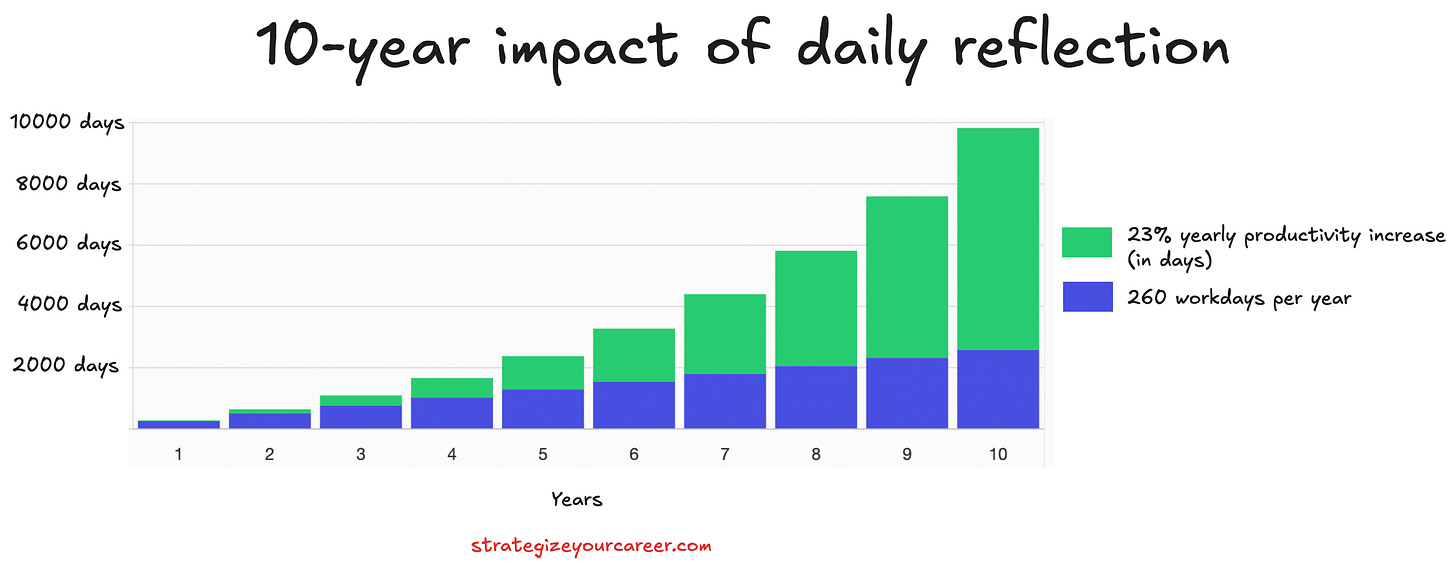💰⌚ How 65 hours DOING THIS saves you 60 working days per year
Discover how 65 hours of focused reflection can transform your professional and personal growth by saving you 60 working days annually. Mastering software engineering—or any skill—requires reflection.
Mastering software engineering isn't a one-time thing. You may become the best in a moment of time, but others will surpass you if you don’t keep improving.
True improvement comes from reflecting on your actions, decisions, and interactions. Taking a step back to analyze what you’ve done and how you’ve done it creates a feedback loop that drives growth.
Analyzing your actions like a neutral third-party observer has profoundly impacted my work. When I objectively evaluate my writing, conversations, and even the behavior of others, I uncover insights that would otherwise go unnoticed.
I realize I had this deliberate reflection ingrained in my soul since my days as a teenager, way before I got involved with software. And it’s not only personal experience, studies show 15 monutes a day provides an outsized return. In this post, I’ll tell you how.
⭐ In this post you’ll learn:
How to learn from your interactions, written and verbally
How to learn from things you didn’t experience yet
How I was applying this since I was a teenager.
3️⃣ The Power of a Third-Party Perspective
One of the biggest breakthroughs I’ve had in my career came when I started treating my own actions as data to be analyzed. By stepping outside myself, I began to notice patterns in how I communicated, coded, or handled conflicts.
I no longer minded if I got it my way or not. What started being important for me is how I did it. This way, every datapoint was an opportunity for improvement.
When you evaluate yourself this way…


